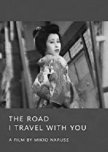
This review may contain spoilers
If the world is such a romantic place, why are things so difficult for us?
Money or romance? Social position or love? Family or lover? Hope or despair?The Road I Travel with You starts out like a romantic comedy/drama with lilting music driving the conversations. A retired geisha's sons have fallen in love with women above their station. The problem is that their mother has already started matchmaking for them and the young women in their hearts are out of reach due to their families' rejection of them. The young men are not so easily dissuaded when it comes to affairs of the heart. Neither is their mother dissuaded when it comes to their futures and money. What starts out with a hopeful beginning quickly turns dark.
The movie takes place mostly in living rooms with stiff acting and even more stilted dialogue. The film frames and cinematography are not particularly creative or interesting. Overall, this felt like a more clinical version of Romeo and Juliet. The young people are in love and can see nothing past this love. The parents are practical to a fault and want secure financial futures for their children even at the cost of the childrens' happiness. Emotions should have been boiling over, yet everyone remained eerily calm or in the case of the retired geisha completely detached from her sons' reality.
This movie could have been more emotional, more gut wrenching if everyone's feet didn't feel like they were nailed to the floor during scenes and if their emotions reflected the dialogue they spoke. At no point did the young men and women convince me of the depth of their love or despair, making the tragedies that would follow hollow and meaningless to me. I would never try to dissuade anyone from watching this romantic melodrama, but for my experience, this short movie clocking in at 1 hour 9 minutes felt more like 3 hours.
Was this review helpful to you?
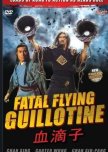
This review may contain spoilers
I was born to be cruel you fool!
Carter Wong gives mama’s boys a good name when he takes on Chen Sing’s flying guillotine wielding baddie. Decapitations and amputations come steadily at the hands of kung fu’s most bizarre weapon.The plot is thin and has numerous confusing plot developments, many never explained. The basic structure of the story is that Carter must go to the Shaolin monks to borrow a mystical healing handbook to save his ill mother's life. In order to gain access to it he has to fight his way through three levels of shaolin fighters. When he ultimately succeeds, he and the monks are betrayed. In order to retrieve their special book stolen by the 4th Prince who has grand ambitions they are set on a collision course with the master of the guillotines.
The guillotines and other secret weapons as well as hand to hand combat are employed to deadly ends. Some fight scenes are better than others, many including a healthy dose of wire-fu. Carter Wong wasn’t as stiff in this movie as he has been in some. Chen Sing always makes for a compelling bad guy, even in a bedraggled gray wig and beard.
The Fatal Flying Guillotines looked like it had been mostly remastered. Even at that there were scenes which went from clear and wide screen to grainy full screen images. The cinematography was pretty decent for the budget and era. Much of the fighting took place outside in some very nice scenery.
Guillotines kept the action going almost non-stop with double and triple crosses all in the name of gaining the knowledge of the spinning weapons. Many kung fu films suffer from an abrupt ending, and The Fatal Flying Guillotines was no exception, but not as bad as some. Overall, it was an entertaining 1970’s kung fu film, though maybe not the strongest of the guillotine movies.
Was this review helpful to you?
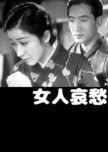
This review may contain spoilers
Since I cannot marry someone I love, anyone will do
A Woman’s Sorrows sounds like a tragic film but instead it’s a movie about one woman’s self-discovery. Set in 1937 before WW II, some nascent progressive ideals about women’s place in the world and marriage were explored.Hiroko was a shop girl who came from a poor family. Described repeatedly as “conservative and indecisive” she found herself unable to marry the cousin she loved and decided any man her mother chose would be acceptable to marry. She ended up married to a man from a wealthy family but soon discovered she was little more than an unpaid servant and one who worked longer hours than the employed maid. When any task needed to be done “Hiroko” was the first word on the family’s lips. Her husband viewed her as a pretty doll to take out and look at occasionally when he wasn’t partying with his friends after work.
Her sister-in-law, Yoko, married for love, but her husband could not provide for her in the way she was accustomed, and she came home to her family. He refused to give up on Yoko creating conflict by using Hiroko as a messenger.
Both Hiroko and Yoko had to come to terms with what they wanted out of their lives and marriage. Both were bound by the patriarchal system and well-defined roles they were expected to follow even if some of the rules appeared to be bending. For instance, Hiroko’s conservatism was viewed as a mark against her when looking for a match. Her new family loved her submissiveness but did not respect her for it. Yoko, though refusing to become submissive like Hiroko, could not free herself from her perception of what marriage should be and was also trapped.
Hiroko slowly began to understand she was more independent than even she knew herself to be. I have never wanted to stand up and cheer for a Japanese film as I did for this one when Hiroko stood up for herself and her beliefs rejecting the emotionally unfulfilling life she had entered into. I found A Woman’s Sorrows to be surprisingly progressive for a 1937’s film on marriage bolstered by a satisfying ending. For anyone not put off by such an old film I could easily recommend it.
Was this review helpful to you?
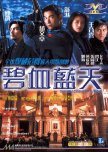
This review may contain spoilers
My first inclination if you've found this movie page and are wondering whether to watch this movie is to say, "Run for your life!" or "Do not stop, do not pass go, put this directly into your NI list". But I will try to be slightly more objective than that because someone other than me may want to sit through this because they are a Shu Qi fan. Or perhaps a Vincent Zhao fan. Or you don't care how bad the acting and story are if you can watch some martial arts. Let's start with the story. Vincent Zhao's character is banished to the fictional country of Lavernia (right next to Shirleenia) for saving a plane full of passengers from a high jacker. Ostensibly it's because he didn't follow orders, but I think it's because he emptied an entire magazine into the bad guy and still didn't kill him. Lavernia is a former part of the Soviet Union and there are people sent in chanting they want to return to the USSR. A Japanese cult leader is in town blowing things up and killing people left and right in his desire for a new world order. There's a boat load of Chinese refugees offshore that are starving to death. Oh, and the Minister of Defense is on the take and a gun runner and also in cahoots with the deadly cult leader. Throw into this mix, Shu Qi's character who fled China after being a witness to the violence and carnage in and around Tiananmen Square and is also Zhao's ex-girlfriend and you have one convoluted piece of work.
The propaganda is heavy handed in this film. Shu Qi's character is berated by Zhou's character and just about everybody else throughout the movie for leaving the homeland after witnessing people wounded and dying when the protesters were crushed.
Zhou is a good kicker, but his acting felt bland to me. Even at that it was much better than the rest of the male cast. Shu Qi didn't have much to do but play the pretty damsel in distress. Andrew Lin made the most of his crazed messianic villain. His character seemed especially impervious to bullets, especially after his initial capture when his rescuers sprayed the area with bullets attempting to take out his guards.
There were places in the movie so bad I was laughing but it was hard to keep it up as the ridiculousness of the scenes dragged on. Some of the fights were good, others relied heavily on wire-fu and defying the laws of gravity. I don't mind a little wire-fu outside of fantasy movies, but in a more reality-based story it seemed badly out of place.
The movie ended with an over-wrought climax that had me begging for the final credits. The most positive thing I can say is that the movie is mercifully only 90 minutes long.
Was this review helpful to you?
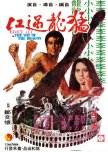
This review may contain spoilers
Bruce Lee wrote, directed and starred in Way of the Dragon, taking the crew to Rome to film among the Coliseum ruins. Way of the Dragon begins as more of a comedic story with Bruce as the fish out of water in Rome trying to help with a family business. Nora Miao's restaurant is under attack from a developer who wants her to sell. Bruce's character plays the unstoppable force who can take on an entire army of bad guys. Ultimately, the Big Bad calls in Chuck Norris to rid him of the troublesome new guy.
I found the first half of the movie less than enthralling. Much of it was supposed to be funny but I didn't get the humor, especially a long running gag with Bruce having gastrointestinal distress.
The second half of the movie is pure martial arts magic. Some versions cut out a scene with Bruce taking on a group of thugs with not one set of, but two sets of nunchucks. It also shows why amateurs should not try those tricks at home, which was really funny. The climax of the movie with Bruce fighting Chuck Norris is a classic. Chuck was a legitimate and respected karate champion. Bruce wanted someone who could keep up with him and the fight was highly entertaining. Bruce asked Chuck to gain some weight to make him look more formidable and it would seem to not shave his back hair (chest hair was considered sexy in the 1970's). A cat watching the events played out some of the emotions of the two fighters and the audience.
Bruce Lee was artistry to watch, when he slowed down enough for us to catch even a fraction of his moves. Despite my disappointment with some elements of this film, no actor had a better "I'm through playing around now" look than Bruce had. His intensity was smoldering. The fights in the second half of the movie ran the gamut from fun to tense, to enthralling. If you enjoy martial arts movies, and haven't seen this one, you need to put it on your list. The classic fights in it are not to be missed.
Was this review helpful to you?
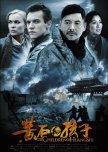
This review may contain spoilers
In a small city on the Mongolian border in China stands a statue of an Englishman. Unlike so many white savior stories, The Children of Huang Chi is based on the real life of George A. Hogg, an Oxford graduate in economics who ended up leading 60 war orphans safely to Shanshan 700 miles/1000km from where they started in Huang Chi. Writer James MacManus visited the town and interviewed survivors making the basis for this film.George Hogg was played by Jonathan Rhys Meyers with more or less success. For me, he is an acquired taste. Hogg was a reporter stuck in Shanghai away from the action. He managed to make it into Nanjing masquerading as a Red Cross driver. He got there in time for the massacre and ended up nearly being killed for taking pictures of the atrocities. He was rescued by a communist guerrilla, Chen Han Sheng, played by the charismatic Chow Yun Fat. West Point educated in engineering, Chen was very good at blowing things up. When Hogg is injured, an American nurse, Lee Pearson, played by Radha Mitchell, suggested Chen send him to Huang Chi to recover, learn some Chinese and take charge of 60 orphans hiding out there.
What Hogg found when he arrived in Huang Chi were 60 boys, malnourished, suffering from various diseases, and barely sheltered. Devastated from the loss of their families, they did not welcome Hogg with open arms. He was just another foreigner. Hogg wasn't thrilled to be there either. With some encouragement from Lee and few other prospects available, Hogg began slowly improving conditions at the estate and winning the boys' trust. As the boys healed, they were faced with one of two eventualities-the Japanese who were nearing the estate would practice their scorched earth policy on them of Kill All, Burn All and Loot All which the boys had already survived once. Or, one of the Chinese armies would conscript the young boys to fight. At this point Hogg knew he needed to take the boys as far north as he could. With the help of Lee and Chen they began the boys' long journey through dangerous territory to the Gobi Desert.
As a co-production of China, all the characters were on equal footing. This wasn't a story about a heroic white guy who saved China. It was the human story of a man who saw the needs of 60 boys and stepped up and did what was necessary, what was right, as did the other characters trying to help them and survive the invading Japanese armies. More meaningful than even the movie, were the interviews during the credits with the real-life boys, now old men, Hogg helped.
The scenery and cinematography were beautiful. The stunning shots of the mountains, lakes, and desert were suitable for framing. Though understated the score fit the scenes perfectly.
Even though the film touches on the atrocities committed on the Chinese civilians, this is not an action movie or thriller. It's a story of courage and love, of building relationships and family. It's a story of love for the children who had suffered and seen more than anyone should have to. It's a story of how people stepped up and put their lives on the line for those children. At its heart, The Children of Huang Chi, like the statue erected in his honor, was a love story to George Hogg and the devotion he had for children not his own.
Was this review helpful to you?
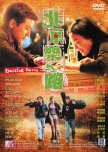
This review may contain spoilers
Beijing Rocks follows the lives of what amount to be poor, itinerant musicians hoping for their big break as long as they don't have to change who they are. Daniel Wu played Michael, a wealthy Hong Kong musician, whose money came more from his father than any money he made in the Hong Kong Music industry. Awaiting trial on an assault charge he traveled to Beijing to learn Mandarin and finish a song he was working on. He quickly fell in with an underground rock band led by Road (Geng Le) and his free-spirited girlfriend Yang Ying (Shu Qi).
Beijing Rocks see-sawed between shots of vibrant, loud night scenes and ordinary daytime markets. The rockers went on a road trip or hole hopping where they traveled and then put up a tent to bring on the noise. Road was a character who could be hard to like. He was talented but sabotaged every shot the band got, cheated on his girlfriend and ran away at the sign of trouble. Shu Qi brought the thankless role of the devoted girlfriend to life and the movie lacked spark when she was not on the screen. At first glance she appeared to be a party girl, but Yang Ying's effervescence belied her darker thoughts. Michael, a fairly bland character, acted much like our window into the world Road and Yang Ying navigated that was on the thin boundary of poverty and fell into violence occasionally. The tipping point for Road and where his path slipped into melodrama was when he realized the record companies wanted obedient rockers who only acted rebellious, not actual independent minded rockers.
For me, the rock music, especially at the beginning was high school garage band at best. Near the end I actually enjoyed the song Good Night Beijing. Or maybe I had finally fallen into the rhythm of this quirky film.
Whether you think this movie rock and or rolls may be determined by how much you fall in love with Shu Qi and this flowing narrative of rebellious rockers.
Was this review helpful to you?
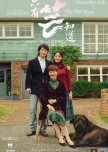
The story begins with a man who had lost his wife revisiting places she loved with her ashes. Throughout the movie as he met people, he told them about different parts of their relationship in sweeping flashback. There was nothing extraordinary about this devoted couple, but it was their devotion to each other through the years that made it meaningful.
Both characters, originally from Beijing, met in New Zealand and worked to find their way in their new country. They assimilated fairly easily, making good friends and starting their own business. However, Luo Yun, the wife, quietly struggled with their idyllic life in a remote town where they ran a small restaurant. Sui Dong Feng, the husband, was the practical sort who found the best in whatever situation he was in. Yang Cai Yu and Huang Xuan had a gentle chemistry that made something magical out of their characters' ordinary existence.
New Zealand should have been listed as a character as there were many shots of its gorgeous scenery, whether green bucolic fields, panoramic mountains, the Southern Lights or oceanic whale watching shots.
The OST was also saccharinely emotional, but fit the mood perfectly. The cinematography bestowed lush, warm shots, nestling us into the embrace of Yun and Dong Feng's life. I could almost feel the director pushing me toward tears, something I usually fight off. Instead of rolling my eyes, I found myself reaching for a tissue at several key moments. If the story was predictable, it also felt sincere in the lavish telling of this couple's love story.
Though dealing with the death of a loved one, Only Cloud Knows avoided melodrama and became a celebration of life and love instead.
Was this review helpful to you?
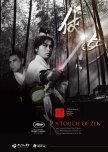
The movie opened with a spider spinning her web. Political intrigue and battle strategy were woven throughout, complex and yet fragile. This three hour movie was divided into three segments. The first focused on Ku Shen Chai, an underachieving scholar and painter and his relationship with his mother. She harangued him for his lack of ambition and single status almost constantly. Strangers began wandering into town, including Hsu Feng's Yang Hui Ching bringing with them danger and subterfuge. The second segment turned into a battle between a large troop of government troops against a small band of rebels. Ku's knowledge and battle trickery came into play as his character evolved. The third segment moved into the spiritual realm as the monks sought to have both the good guys and bad guys move beyond the temporary conflict to peace.
ATZ was unusual for a martial arts movie, the fights didn't begin until after the first hour. The movie wasn't structured around the fights, the fights were used to enhance the story being told. The cinematography, sets, scenery, and costumes were extraordinary for a 1971 Taiwan martial arts movie. Hsu Feng had helped fund the restoration of this film and for that we should all be grateful. Clear, vibrant, lush, it was a treat for the eyes. King Hu's camera direction caused the viewer to ever look upward as the film progressed, symbolic for the message being woven throughout. His fight set among the bamboo inspired later films such as House of Flying Daggers.
Hsu Feng's character was a woman who spoke few words, preferring to let her blades do the talking. Wanted by the current corrupt regime, she was aided by two disgraced generals. They had hoped to find peace far away from the palace only to have trouble and death follow them. Hsu gave a quiet, yet memorable performance. Pai Ying 's General Shih also moved through the world with little to say. Only Ku and his mother chattering about gave the film a verbal foundation to stand upon. I enjoyed all the performances with the possible exception of Shih Chun's Ku. He seemed out of place with the other actors but perhaps that was the point. His character certainly evolved the most and showed that even someone without kung fu skills could still be beneficial in times of need. Lastly, Roy Chiao's performance as a Buddhist monk still connected enough to worldly events to aid those fleeing evil and spiritual enough to care about the evil doers was quite good.
Though clocking in at three hours long, A Touch of Zen kept my attention throughout. I could easily recommend this beautifully shot movie to martial arts movie enthusiasts and those who can look past a few dated performances and special effects to see the hidden gem lying beneath.
Was this review helpful to you?
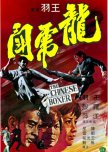
Jimmy Wang Yu played the top student at a kung fu school. A disgruntled former student returned after learning judo and roughed up a bunch of students and then was promptly dispatched when the master showed up. The master explained that while kung fu was used for sport and self defense, karate was used for killing. Later, the former student showed back up with a crew of Japanese karate experts led by Lo Lieh in a bad wig. The karate experts went on a killing and eye gouging rampage in the school only leaving a few wounded alive, including Jimmy's Lei Ming. The karate thugs seized the opportunity to take over the town and made it into an illicit gambling den.
The familiar plot ensued. After Lei Ming recovered, he secretly learned the Iron Fist technique and light body skills. Then it was his turn to to on a bloody rampage. The fights were okay, Jimmy wasn't a martial artist and it showed. Blood spurted a plenty and the movie sported a high body count. Lei Ming taking on a bunch of katana wielding samurais in the the tall grass was entertaining. Too many of the fights were chop and block and not terribly fast. Lo Lieh, as always, had great screen charisma even if he wasn't on screen much and was required to do some screaming that seemed out of place.
The sets were all very nice and most were nicely destroyed with fists, kicks, and bodies thrown through them. Fake snow and real snow abounded. It's one of the few final fight scenes I've seen where there was snow and ice on the ground which seemed hazardous for the actors and crew. You could tell where they cleared a few areas off down to the dirt to provide a better place to spar.
It was fun to see these actors when they were very young, aside from Wang Yu and Lo Lieh, Chen Sing, Yuen Woo Ping, and Chen Kuan Tai, among many well known martial artist bit players were in the background.
There was an unnecessary rape scene that took away from the movie for me. Also several birds were killed which left a bad taste as well.
Jimmy's acting wasn't as stiff in this movie as in others I've seen him in and his directing was quite good. As a first entry into the "modern" kung fu era it was a respectable entry and worth watching for the historical implications at the very least.
Was this review helpful to you?

The basic plot is the evil eunuch desires a magic red pill created to heal the emperor and grant him immortality. In the process of stealing it and securing his position he secretly pits the Wu Dang clan against the Lunar clan. The white-haired witch belongs to one clan and the impetuous fighter who falls for her in the other. A few misunderstandings and an astonishingly high body count later and you've got the gist of the story.
The acting was fine for what was required of the actors. Most weren't on screen long enough to form any real bond or hatred of. The actual running time was probably closer to an hour, making it shorter than some drama episodes which means there was a dearth of character development. At one point I wasn't really sure who belonged to which clan because there hadn't been enough of an introduction for me to identify the characters in even the most vague way. Not to give too much away, but by the time I figured out who belonged to which team it was pretty much irrelevant anyway.
The CGI was good for a film that felt low budget and the fights were entertaining. I'm always happy to see a strong female protagonist who can wield a sword and long, lethal hair. There were some creative fight elements and magical weapons and abilities which kept the fights interesting.
I wouldn't put this movie high on a kung fu watchlist but it was an entertaining hour of CGI fights, betrayals, and a little romance thrown in for good measure.
Was this review helpful to you?

The best part of this movie for me were the villains, especially the dastardly Dr. Hu and his plot to use Kong to dig Element X from under the North Pole. Given that in the dubbed version I watched the voice actor was Paul Frees who voiced many characters in Rankin Bass Christmas stop action movies (the Berger Meister Meister Berger!) I fully expected to see Santa's castle in the mythical land. Dr. Hu with his great teased white hairdo, magnificent cape and malevolent voice was easily the most entertaining part of the movie. His cohort in crime, Madame Piranha/Madame X, played by Mie Hama, a bond girl in You Only Live Twice, played a great femme fatale.
The Good Guys were a bland and mostly ineffectual lot, although I enjoyed seeing Takarada Akira who performed in several Toho productions going back to the original Godzilla. The object of Kong's affection/friendship in this movie, played by Linda Miller, isn't afraid of Kong and tries to help him out of trouble as I guess Kong speaks English or Japanese depending on the version you watched. Maybe he's multilingual?
MechaKong definitely looked cooler than King Kong although lacking in weaponry like MechaGodzilla. Kong's fights with Gorosaurus and MechaKong were okay. The fight with MK was far too short. The doll he carried around at times which was supposed to be the blonde female had red hair which was funny.
This is silly escapism that requires checking your adult brain at the door because little of it makes sense. Depending on how well you can do that will determine how much you might want to escape with Kong from this movie.
Was this review helpful to you?
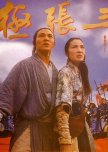
When two young Shaolin monks are kicked out of the temple and have to find their way in the world, one chooses evil and one chooses good. The friends' choices, of course, put them on a collision path to betrayal and destruction.
Jet Li handles the fights scenes just as you would expect him to-marvelously. He's fast and believable even in some over-the-top wire scenes. Michelle Yeoh is agile and elegant whether wielding a sword or in a flying table fight. Their characters help each other out in their darkest moments without resorting to a forced romance. It was refreshing to see a friendship built on mutual respect for each other and each other's abilities.
Chin Siu Ho, who plays the friend who chooses the wrong path, does an admirable job of falling down the well into power and greed. The supporting cast of characters were fleshed out enough that I cared about what happened to them.
My only quibble is the comedy/madness portion of the movie which goes on too long even if it results in Jet Li's character developing his new skill set. This isn't a true spoiler for kung fu movie enthusiasts, it's the common formula. Good guy gets beaten, goes off to develop a new kind of kung fu, goes back and confronts the bad guy. In a movie with a high body count, those supposedly funny moments dragged on too long for me.
The cinematography is good but not great. The focus is on the fights and Yuen Woo Ping excels as always in coming up with creative ways to stage fights--even a giant game of kung fu Jenga!
The movie may be dated, but Jet Li and Michelle Yeoh make up for any story deficiencies. Tai Chi Master has spectacular fights throughout the movie featuring two of the greats of the genre, definitely worth the price of admission.
Was this review helpful to you?
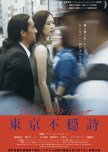
Shuna Lijima plays Jun who wants to be an actress and is paying her bills by working as a "hostess" in a seedy bar where her boyfriend works. All she has worked for is destroyed in one night with his betrayal leading her to return to the home she hasn't seen in five years. Home is not a safe haven, but she's hoping to get a share of an inheritance to start a new life. She hooks up with an old childhood friend after she returns to the small town. This would seem to be a natural place to infuse some sort of healing instead the hits keep on coming and spiraling ever downward sometimes inexplicably.
Lijima is the highlight of this film as she gives a powerful performance throughout. The male actors are adequate but not much more.
The cinematography and score are excellent, the fault isn't with the technical movie making. There is no breathing room in this film, no moment of light in the dark and tormented places in this woman's life. None of the characters are particularly likeable, including Jun. Her childhood friend, Yuki, makes a bad decision that seems drastically out of character. There is an awful lot of bad behavior from every character in the movie which can make it difficult to watch. The problem I have is that the focus could be interpreted as being around Jun leads to bad things. I'm more inclined to believe that she finds herself drawn to bad people because of her childhood experiences. This doesn't mean she doesn't make some horrendously bad choices, because she does, without ever looking for an answer that wouldn't lead to disastrous consequences.
Bad Poetry Tokyo may not be a bad film but I didn't find it to be a particularly good one either.
Was this review helpful to you?
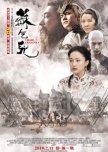
The actors all did a fine job with what they were given. Vincent Zhao handled his fight scenes well, but Zhou Xun was the heart of the movie. The child actor wasn't one of the stronger ones I've seen but he was mostly supposed to cry and yell so I can't lay it all on him. Gordon Liu who played Beggar Su in Young Vagabond made a guest appearance. Michelle Yeoh and Bryan Leung also make special appearances.
My problem with the story was with Su. At first he was unbelievably naïve to the point of endangering his family. At other times he was next to useless, self-absorbed, selfish, or short-sighted. Without giving away any spoilers, let's just say he was never going to make father or husband of the year. His wife, Ying, could see when danger was approaching and also when the time to act was. Her first thought was how to hold the family together and looking for ways for them to survive. For me, she was the real hero of the movie.
The fight scenes were good as one would expect from a Yuen Woo Ping movie when they weren't relying too heavily on CGI. In a 2 hour movie it would have been nice to have had a little more dialogue between characters and some character development. I wasn't given much of a reason to care about any of these people.
Most egregiously, the final act seemed completely unrelated to the rest of the movie in style and tone dragging out the story in what appeared to be more of a political statement.
The fighting in True Legend was exhilarating, if exhausting. It just needed a little more heart, and some better editing, to make it memorable.
Was this review helpful to you?

 54
54 188
188 11
11






















